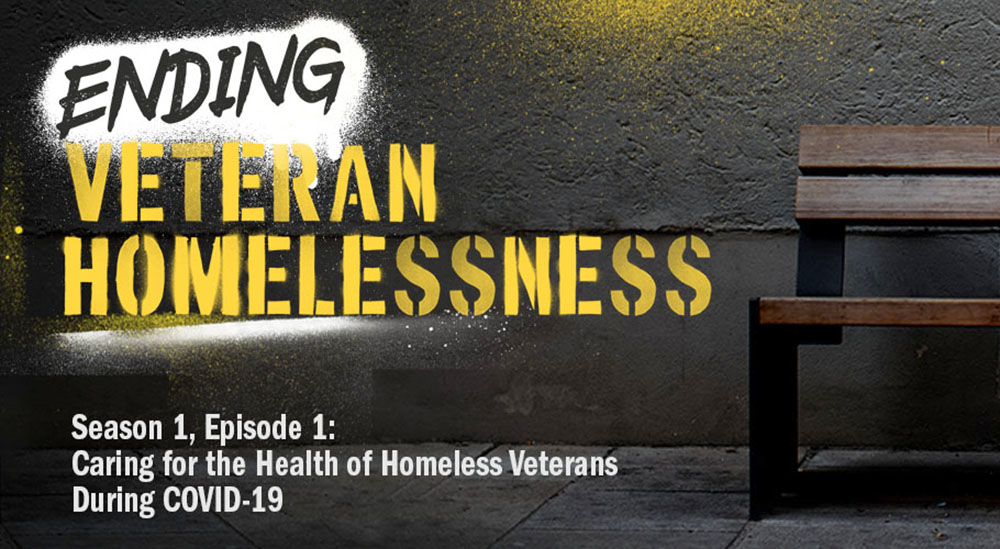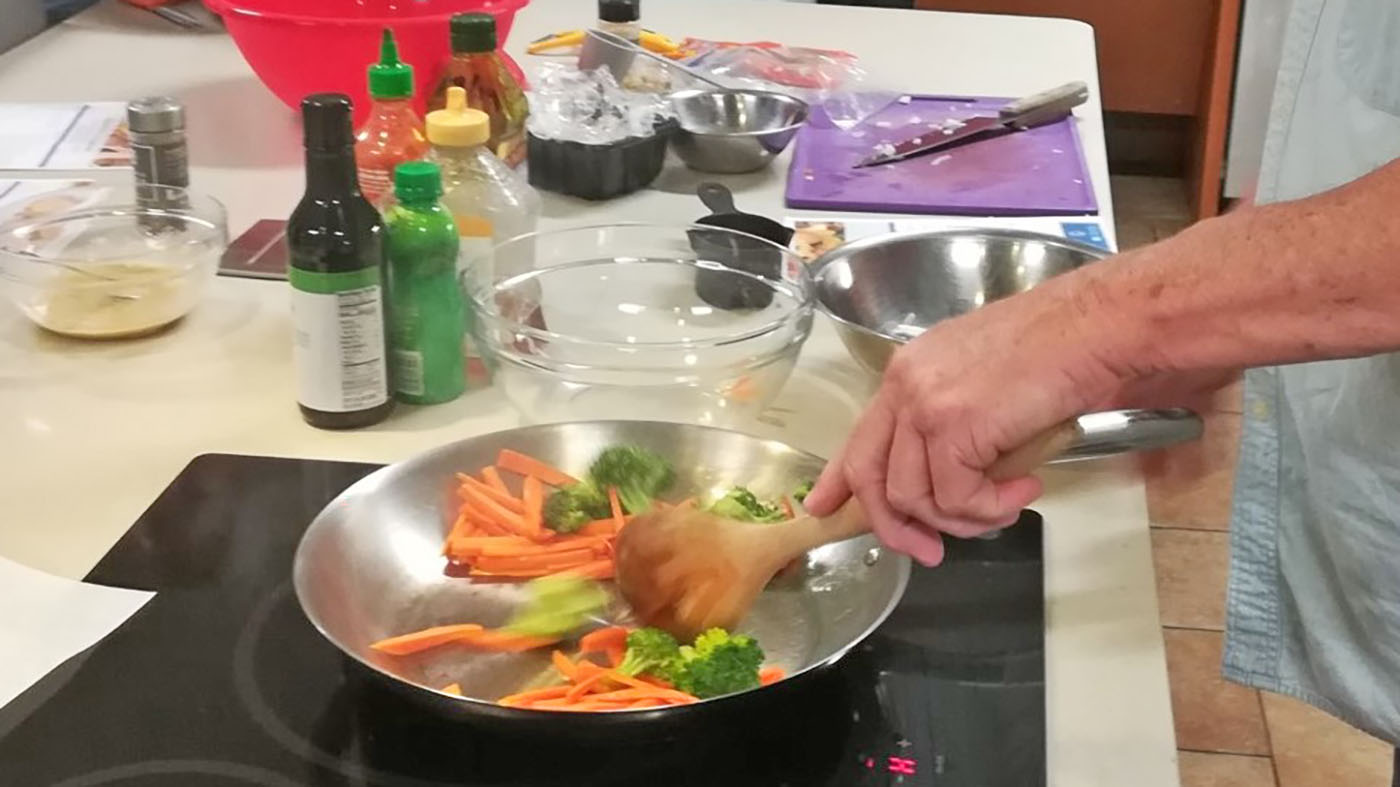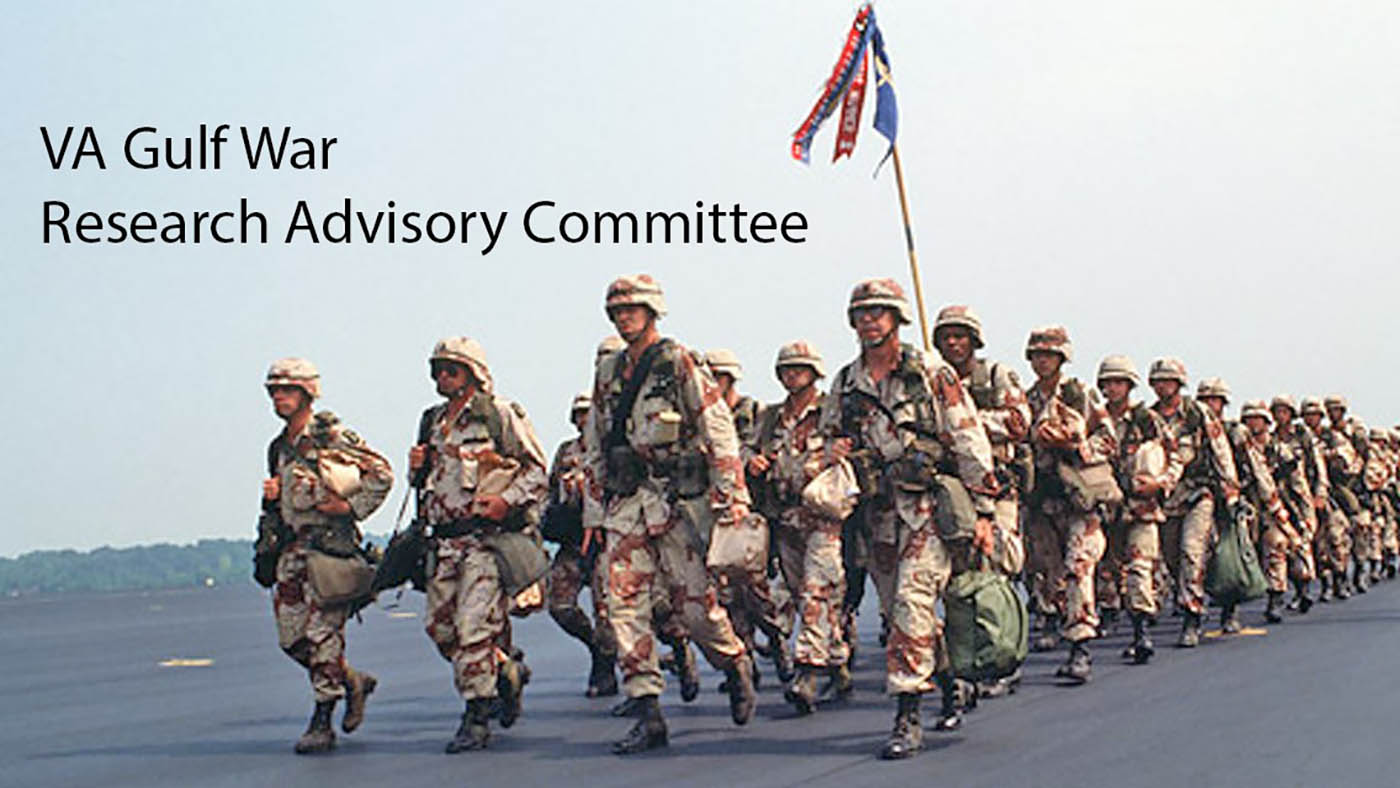Want to know what VA is doing to end Veteran homelessness? Tune into VHA’s new podcast, Ending Veteran Homelessness.
Hosted by the VHA Homeless Programs Office (HPO), the podcast will explore how our country is working to ensure that every Veteran has a safe and stable place to call home.
The podcast’s debut is timely. We’re nearly two years into a global pandemic. VA’s homeless programs have implemented a myriad of changes to meet the dynamic needs of Veterans at risk of and experiencing homelessness. The series will introduce Veterans to new benefits and program innovations. It also will outline how HPO’s strategies have reduced – and will continue to prevent – Veteran homelessness.
In the inaugural episode, Dr. Jillian Weber, Homeless Patient Aligned Care Team (HPACT) national program manager, discusses how VA has protected the safety of Veterans experiencing homelessness since the onset of the COVID-19 pandemic.
Leading VA’s COVID-19 counterattack
As COVID-19 evolved across the United States in early 2020, so did Weber’s role. She oversaw the daily operations and management of HPACT. She also stepped up to serve as HPO’s co-lead for the COVID-19 response.
Weber understood that her leadership directly influenced the health outcomes of thousands of Veterans vulnerable to contracting the deadly virus. Understanding how best to protect Veterans was no easy task. She recalls safety guidance updating on nearly an hourly basis.
Small details saved lives
She worked with her team to form a rapid communications response protocol. They disseminated essential information across VA programs as fast as possible. They also were aware that even small details could save lives.
Among the most urgent threats to the health of Veterans experiencing homelessness were congregate living spaces, open bay or “barracks-style” setups used commonly in emergency shelters or transitional housing settings. As these shared spaces presented a high-risk environment for disease transmission, Dr. Weber and HPACT helped place particularly vulnerable Veterans in individualized beds at local hotels and motels.
Since then, VA has announced two Grant and Per Diem capital grants (authorized through the American Rescue Plan Act of 2021) to improve transitional housing facilities and reduce the risks associated with close quarters living.
Creating a future with health, without homelessness
While the pandemic has devastated our nation, programs such as HPACT are using lessons learned over the past two years to enhance the safety of all Veterans moving forward.
“This is about strengthening the health of the public as a whole, the whole community, the health of a system. We’re all as strong as our weakest link,” says Weber.
The Ending Veteran Homelessness podcast will keep you updated on how we are doing our part.
Please watch for our next blog post to hear about VA Secretary Denis McDonough’s goal to place 38,000 homeless Veterans into permanent housing by December 31st, 2022 with Jill Albanese, director of Business Operations for the VA Homeless Programs Office. She is a member of the leadership team supporting local VA homeless programs in achieving the Secretary’s goal.
To listen to the Ending Veteran Homelessness podcast, click here.
To learn more about the services that VA provides to Veterans experiencing homelessness and housing instability, visit www.va.gov/homeless.
If you are a Veteran who is homeless or at risk of homelessness, call the National Call Center for Homeless Veterans at 877-424-3838, where trained counselors are ready to talk confidentially 24 hours a day, 7 days a week.
Learn more about VA’s COVID response and COVID-19 vaccines for Veterans and their families at www.va.gov/coronavirus-veteran-frequently-asked-questions/.
Topics in this story
More Stories
VA promotes early nutrition intervention for chronic kidney disease with targeted programs like Heathier Kidneys Through Your Kitchen.
VA Research Advisory Committee on Gulf War Veterans’ Illnesses hosting Veteran Engagement Sessions in Phoenix for 1990-91 Gulf War Veterans.
Navy Veteran and president of the American Medical Association got a colonoscopy and encourages other Veterans to do the same.







You are all so full of yourselves, it is all just a bunch of talk! You help a FEW people and say WOW we have met our target goal, haven’t we done such a good job, then pat yourselves on the back. That is an actual quote from a woman named Luanne that works for VCP in Kansas City, MO last year right after Veterans day, saying “that any veteran that is still living on the street is there because he chooses to be there, it is all about taking personal responsibility.”
Lets no actually get involved in the veterans lives and see why they are homeless and try to solve any of the underlying issues, like unjust convictions, traumatic mental issues, extreme health problems, military issues that were swept under the rug, things of that nature that no one really wants to deal with. especially you don’t want to deal with RSO’s that the government has determined are non-persons that no longer have no rights to any type of governmental assistance and are jusr supposed to go crawl in a corner somewhere and die quietly! That is how you treat some of this countries VETERANS!!!!